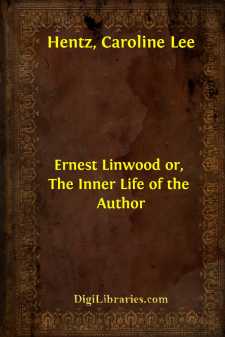Categories
- Antiques & Collectibles 13
- Architecture 36
- Art 48
- Bibles 22
- Biography & Autobiography 813
- Body, Mind & Spirit 142
- Business & Economics 28
- Children's Books 14
- Children's Fiction 11
- Computers 4
- Cooking 94
- Crafts & Hobbies 4
- Drama 346
- Education 46
- Family & Relationships 57
- Fiction 11829
- Games 19
- Gardening 17
- Health & Fitness 34
- History 1377
- House & Home 1
- Humor 147
- Juvenile Fiction 1873
- Juvenile Nonfiction 202
- Language Arts & Disciplines 88
- Law 16
- Literary Collections 686
- Literary Criticism 179
- Mathematics 13
- Medical 41
- Music 40
- Nature 179
- Non-Classifiable 1768
- Performing Arts 7
- Periodicals 1453
- Philosophy 64
- Photography 2
- Poetry 896
- Political Science 203
- Psychology 42
- Reference 154
- Religion 513
- Science 126
- Self-Help 84
- Social Science 81
- Sports & Recreation 34
- Study Aids 3
- Technology & Engineering 59
- Transportation 23
- Travel 463
- True Crime 29
Helen and Arthur or, Miss Thusa's Spinning Wheel
Description:
Excerpt
CHAPTER I.
“First Fear his hand its skill to try,
Amid the chords bewildered laid—
And back recoiled, he knew not why,
E’en at the sound himself had made.”—
Little Helen sat in her long flannel night-dress, by the side of Miss Thusa, watching the rapid turning of her wheel, and the formation of the flaxen thread, as it glided out, a more and more attenuated filament, betwixt the dexterous fingers of the spinner.
It was a blustering, windy night, and the window-panes rattled every now and then, as if the glass were about to shiver in twain, while the stars sparkled and winked coldly without, and the fire glowed warmly, and crackled within.
Helen was seated on a low stool, so near the wheel, that several times her short, curly hair mingled with the flax of the distaff, and came within a hair’s breadth of being twisted into thread.
“Get a little farther off, child, or I’ll spin you into a spider’s web, as sure as you’re alive,” said Miss Thusa, dipping her fingers into the gourd, which hung at the side of the distaff, while at the same time she stooped down and moistened the fibres, by slipping them through her mouth, as it glided over the dwindling flax.
Helen, wrapped in yellow flannel from head to feet, with her little white face peeping above, looked not unlike a pearl in golden setting. A muslin night-cap perched on the top of her head, below which her hair frisked about in defiance of comb or ribbon. The cheek next to the fire was of a burning red, the other perfectly colorless. Her eyes, which always looked larger and darker by night than by day, were fixed on Miss Thusa’s face with a mixture of reverence and admiration, which its external lineaments did not seem to justify. The outline of that face was grim, and the hair, profusely sprinkled with the ashes of age, was combed back from the brow, in the fashion of the Shakers, adding much to the rigid expression of the features. A pair of dark-rimmed spectacles bestrided her forehead midway, appearing more for ornament than use. Never did Nature provide a more convenient resting-place for twin-glasses, than the ridge of Miss Thusa’s nose, which rose with a sudden, majestic elevation, suggesting the idea of unexpectedness in the mind of the beholder. Every thing was harsh about her face, except the eyes, which had a soft, solemn, misty look, a look of prophecy, mingled with kindness and compassion, as if she pitied the evils her far-reaching vision beheld, but which she had not the power to avert. Those soft, solemn, prophetic eyes had the power of fascination on the imagination of the young Helen, and night after night she would creep to her side, after her mother had prepared her for bed, heard her little Protestant pater noster, and left her, as she supposed, just ready to sink into the deep slumbers of childhood. She did not know the strange influence which was acting so powerfully on the mind of her child, or rather she did not seem to be aware that her child was old enough to receive impressions, deep and lasting as life itself.
Miss Thusa was a relic of antiquity, bequeathed by destiny to the neighborhood in which she dwelt,—a lone woman, without a single known relative or connection. Though the title of Aunt is generally given to single ladies, who have passed the meridian of their days, irrespective of the claims of consanguinity, no one dared to call her Aunt Thusa, so great was her antipathy to the name. She had an equal abhorrence to being addressed as Mrs., an honor frequently bestowed on venerable spinsters. She said it did not belong to her, and she disdained to shine in borrowed colors. So she retained her virgin distinction, which she declared no earthly consideration would induce her to resign.
She had formerly lived with a bachelor brother, a sickly misanthropist, who had long shunned the world, and, as a natural consequence, was neglected by it. But when it was known that the invalid was growing weaker and weaker, and entirely dependent on the cares of his lonely sister, the sympathies of strangers were awakened, and forcing their way into the chamber of the sick man, they administered to his sufferings and wants, till Miss Thusa learned to estimate, at its true value, the kindness she at first repelled. After the death of the brother, the families which composed the neighborhood where they dwelt, feeling compassion for her loneliness and sorrow, invited her to divide her time among them, and make their homes her own....



